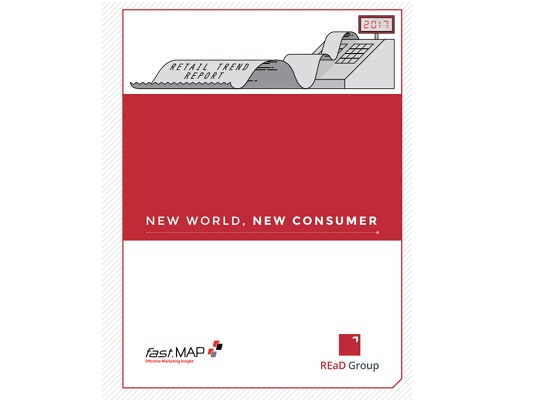Amazon is the UK’s most trusted retailer, followed by Tesco, Sainsbury’s, Boots, and M&S, according to new research.
The study, from data communications group REaD Group, uncoved an intrinsic link between retailer trust rating and age of loyalty programme
Following up on its 2013 report into the retail sector, it finds that:
- 50 per cent of consumers trust Amazon with their personal data
- Consumer trust is on the rise across all sectors
- Supermarkets are considered most trustworthy of all retailers
- There is a clear link between the trust ranking of each of the top three supermarkets, and the age of each brand’s customer loyalty programme
With the EU General Data Protection Regulation (GDPR) less than one year away, consumer trust has never been more important. Brands will soon need to re-obtain consent, and these results highlight how consumers prefer to be contacted and which brands they trust.
Supermarkets are rated as being most trusted of all retailers by 42 per cent of consumers, followed by High Street chains in second place with 35 per cent, and independent retailers in third place with 31 per cent. Amazon topped the list of the most trusted retail brands, with 50 per cent of consumers trusting it with their personal data, followed by additional choices Tesco (39 per cent), Sainsbury’s (33 per cent), Boots (33 per cent), and M&S (32 per cent) respectively.
The research reveals a clear link between the trust ranking of each of the top three supermarkets, and the age of each brand’s customer loyalty programme. Tesco, which was one of the first retailers to introduce a loyalty scheme with its Tesco Clubcard in 1995, is the most trusted supermarket. Sainsbury’s introduced its Nectar Card in 2002, whilst Boots introduced its Advantage Card in 1999. M&S and John Lewis, which were both ranked lower for customer trust, only introduced their loyalty schemes in 2016 and 2011 respectively.
REaD Group’s Retail Trend Report also shed light into consumers’ preferred channel of communication with a brand. The results reveal that there is still a strong preference for email marketing (50 per cent) followed by sourcing information and offers via the retailer website (34 per cent), TV advertising (25 per cent) and Direct Mail (21 per cent). The younger generation of consumers (aged 18-34) selected social media as their third preferred channel of communication after website and email, whereas zero per cent of over 65s selected social media.
The results also reveal that marketing information received is more relevant to consumers than in previous years. This is significant, at a time when the impending General Data Protection Regulation (GDPR), due to be implemented on 25 May 2018, will impact the way in which retailers communicate with customers. GDPR recognises customer ownership of their own data and reflects a shift in power in recent years away from companies and into the hands of the customer.
Mark Roy, Founder and Chairman of REaD Group, commented:
“Since REaD Group’s 2013 Retail Trend Report, the world has changed significantly; technology has advanced and the volume of data available to retailers has exploded. We are about to enter a golden age of marketing where consumers are genuinely at the centre of strategies and where there is an ongoing consensual conversation taking place between buyer and seller.
The upcoming GDPR will help to address the challenge of the proliferation of data. It is essential that companies use customer data in an intelligent and responsible manner in line with GDPR, which is now under one year away from coming into force. The future looks increasingly complicated, and by no means easy, but by building on a platform of openness and transparency, opportunities abound and the future looks bright.”
The REaD Group Retail Report and its full findings is available for download here.

